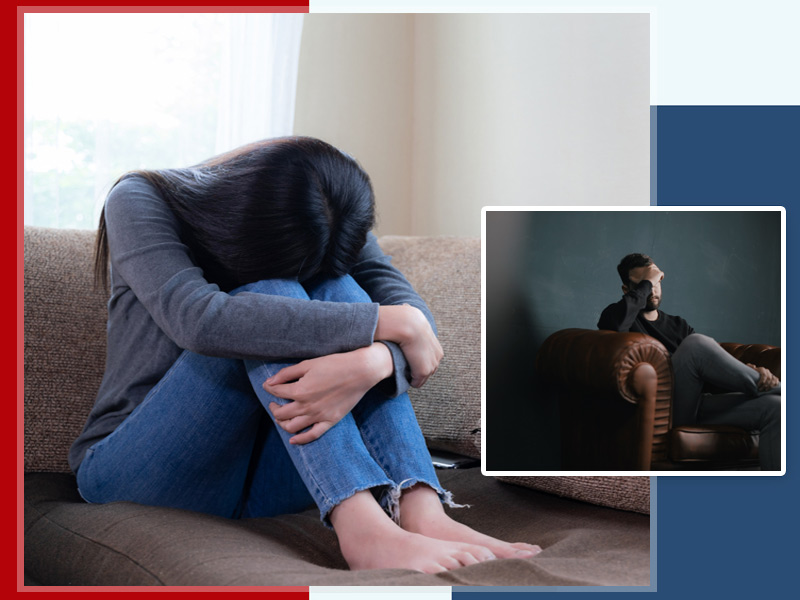
Research says that depression and anxiety among young women are more common than men. During adolescence, too, teenage girls are more susceptible to depression, eating disorders, and even suicidal ideation than boys. So, what explains this trend? Why are women more susceptible to these mental health issues than men? At the same time, what are the mental health issues that men are more likely to suffer from than women? To understand this gender gap, Onlymyhealth spoke to Dr. Abhinav Agarwal, Consultant Psychiatrist, Aakash Healthcare Dwarka.
Table of Content:-
Why Is Depression, Anxiety More Common In Females Than Males?
Primarily, some mental health issues are specific to the hormonal profile of females. Such mental health illnesses include postpartum depression and premenstrual dysphoric disorder. It isn’t the case with men, explained Dr. Agarwal. Then there are social and cultural issues.
- There is a major gender disparity across the world where women share less power and status with men. Circumstances associated with this factor can cause a lack of self-esteem, control of one’s life and might promote negativity, according to a leading health website.
- Also, women often have to fulfill twin responsibilities at work and home. Such workload might contribute to mental health distress. At home, often women are responsible for childcare at the same time as taking care of a sick family member. Such workload is another factor.
- It is widely seen that women are more at risk of physical, emotional, and sexual abuse, which can lead to depression and other mood disorders, explained a leading medical website.

(Photo Credit: Unsplash)
Although females are more susceptible to depression, anxiety, etc, there isn’t a major gender-based difference in the prevalence of mental health disorders, according to the World Health Organisation.
- Adolescent boys are more likely to engage in situations of anger and high-risk behaviour.
- Also, substance abuse disorder is more common among young males than women. They also have an earlier onset of schizophrenia symptoms.
Also read: 8 Ways To Reclaim Your Mental Health The Creative Way
Mental Health Wellness Tips
Be it male or female, taking care of mental health is important for everyone. Just like physical health, it is important for a happy and fulfilling life. Here are some tips by Dr. Agarwal to take care of mental health:
- Diet: Proper, balanced diet is crucial for a sound mind and healthy body. Hence, include lots of seasonal fruits and vegetables, along with complex carbs, proteins, and healthy fats in your diet. Do not forget to drink plenty of water to remain hydrated.
- Physical Activity: Not just your physical health, exercise is crucial for your mental health, as well. When you work out, your body releases endorphins, or ‘feel-good hormones’, which uplift mood and make you feel good. Hence, get the recommended 150 minutes of physical activity in a week.
- Recreational Activities: Indulging in hobbies and recreational activities is just as important for you as your work. Hence, take time for them to unwind and relax.
- Adequate Sleep: People often forget to get adequate sleep, whether for work or leisure. However, for sound mental health proper sleep is crucial. Experts recommend 7-8 hours of sleep for every adult individual.
Also read: Do Women Need More Sleep Than Men?
Other than these, steps should also be taken at the society level to make strides in the mental healthcare landscape. Hence, people shouldn’t disregard the request for mental health care by individuals. The government must also take steps to ensure wide access to such services across the country.
(With inputs from Dr. Abhinav Agarwal, Consultant Psychiatrist, Aakash Healthcare Dwarka)
Also watch this video
How we keep this article up to date:
We work with experts and keep a close eye on the latest in health and wellness. Whenever there is a new research or helpful information, we update our articles with accurate and useful advice.
Current Version
